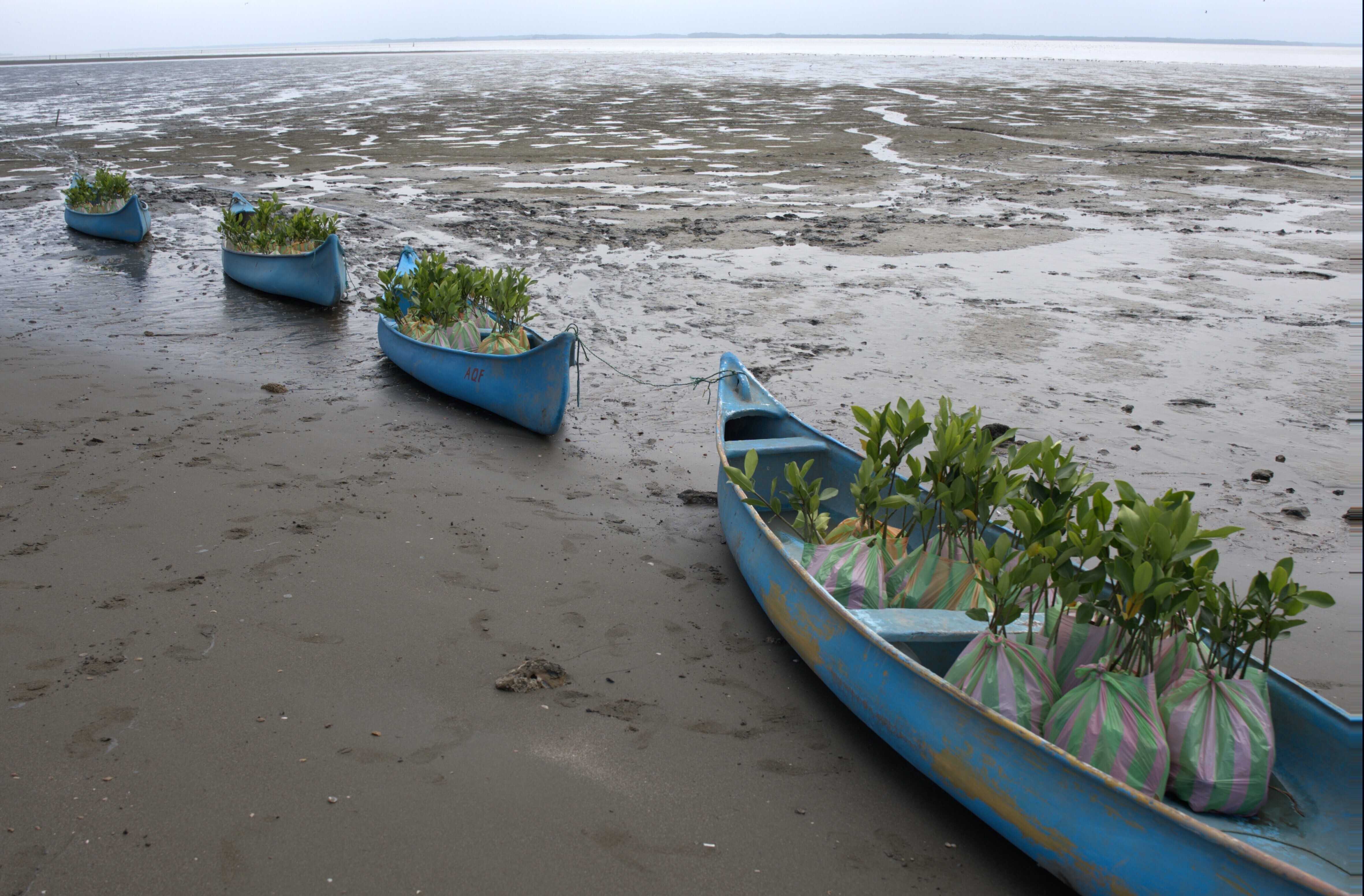EU funding boost, 216 million migrants and human rights risks: What to know about the planet this week

These ice sculptures were installed to highlight the threat posed by climate change to water supplies. Image: REUTERS/Toby Melville
- This weekly round-up brings you some of the key environment stories from the past seven days, to help keep you up to date.
- Top stories: EU pledges increased climate funds for poorer nations; Climate change could trigger internal migration of 216 million people; Warning on human rights risk posed by climate change.
1. Environment stories from around the world
A new report found that most plans for new coal power plants have been scrapped since the Paris Agreement in 2015.
US President Joe Biden said on Tuesday that extreme weather will cost the United States 'well over $100 billion' this year.
Green lawmakers in the European Parliament have urged EU leaders to toughen proposals to fight climate change.
The United Nations High Commissioner for Human Rights has warned that the 'triple planetary crises' of climate change, pollution and nature loss represent the biggest threat to human rights globally.
A BBC analysis has found that the number of extremely hot days - when the temperature reaches 50 degrees Celsius - has doubled since the 1980s.
New US solar installations are on track for a record year, despite supply chain challenges, a new report published on Tuesday has shown.
A new study has found that meat accounts for 57% of all food production emissions, with beef alone accounting for a quarter of emissions produced by raising and growing food.
Four-in-10 young people around the world are hesitant to have children as a result of the climate crisis, a new survey has found.
Drought and heat have hurt wheat harvests in Canada, causing a surge in durum wheat prices - a key ingredient in pasta making - with prices set to increase.
A new United in Science report has warned that COVID-19 has only caused a temporary reduction in carbon emissions and the world is not on track to meet Paris Agreement targets.
Taking the lead on climate action could be worth trillions to India, according to a Deloitte analysis.
2. EU pledges increased climate funds for poorer nations
The European Union has pledged to increase funding to help poorer countries fight climate change and adapt and mitigate against its impacts. The bloc also called on the United States and other countries to increase their support.
"We will now propose an additional 4 billion euros for climate finance until 2027," European Commission President Ursula von der Leyen said in a policy speech at the European Parliament in Strasbourg.
"But we expect the United States and our partners to step up too. This is vital, because closing the climate finance gap together, the US and the European Union, would be such a strong signal for global climate leadership."
The additional money covers the period form 2021-2027 and is on top of $25 billion the bloc already contributes every year in climate funding, von der Leyen said.
3. Climate change could trigger internal migration of 216 million people - World Bank
Without immediate action to combat climate change, its effects - from rising sea levels to declining crop productivity - could force 216 million people to migrate within their own countries by 2050.
That's the finding of a new World Bank report, Groundswell 2.0, published on Monday that modelled the impact of climate change on six regions.
Climate migration 'hotspots' will emerge as soon as 2030, and worsen by 2050, it found. These hotspots are likely to hit the poorest parts of the world hardest.
Sub-Saharan Africa alone would account for 86 million of the internal migrants, with 19 million more in North Africa, the report showed, while 40 million migrants were expected in South Asia and 49 million in East Asia and the Pacific.
The report's authors have called for urgent action.
"We're already locked into a certain amount of warming, so climate migration is a reality," said Kanta Kumari Rigaud, the bank's lead environment specialist and one of the report's co-authors. "We have to reduce or cut our greenhouse gases to meet the Paris target, because those climate impacts are going to escalate and increase the scale of climate migration."
What is the World Economic Forum’s Sustainable Development Impact summit?
Don't miss any update on this topic
Create a free account and access your personalized content collection with our latest publications and analyses.
License and Republishing
World Economic Forum articles may be republished in accordance with the Creative Commons Attribution-NonCommercial-NoDerivatives 4.0 International Public License, and in accordance with our Terms of Use.
The views expressed in this article are those of the author alone and not the World Economic Forum.
Stay up to date:
SDG 13: Climate Action
Related topics:
Forum Stories newsletter
Bringing you weekly curated insights and analysis on the global issues that matter.
More on Nature and BiodiversitySee all
Vicky Stratigaki and Noa Ligot
November 18, 2025







